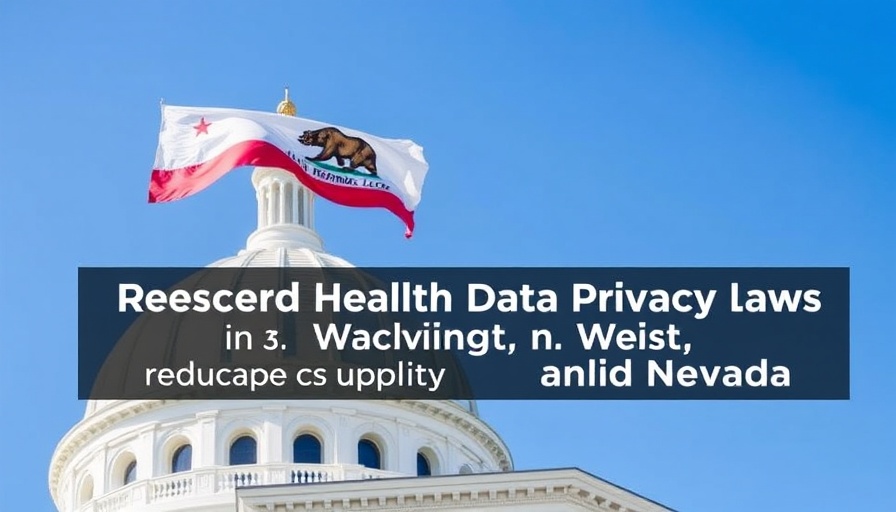
New Health Data Privacy Laws Set a Precedent
In April 2023, Washington State made significant strides in consumer privacy by enacting the My Health My Data Act. This landmark legislation has inspired similar initiatives across the country, including Nevada's recently passed Bill SB 370. As these laws come into effect on March 31, 2024, they will impose stringent requirements on businesses that collect or process health-related consumer data, impacting various industries beyond healthcare.
Understanding the Scope of Consumer Health Data
Both Washington and Nevada's laws define consumer health data quite broadly, encompassing any personal information that can link to a consumer's health status. Notably, Washington's law allows for individuals to bring private actions against companies violating these regulations, while Nevada has opted not to include such a provision. This difference underscores the varying levels of accountability that companies may face depending on their location, requiring businesses to be diligent in understanding these new regulations to remain compliant.
Compliance Challenges: What Businesses Need to Know
For businesses, the most significant challenges will revolve around compliance with the new consent requirements. Both laws mandate affirmative opt-in consent from consumers before collecting or sharing health-related information. Furthermore, companies must provide clear privacy policies on their websites, explaining how consumer health data is collected, shared, and used. This new necessity for transparency not only increases the administrative burden on businesses but also scopes a new era of consumer rights where individuals have greater control over their personal data.
The Broader Impact on Consumer Privacy Laws Nationwide
The enactment of these laws by Washington and Nevada is a part of a broader trend, with states like Connecticut also amending their existing laws to enhance consumer data protection. As privacy concerns grow, states without comprehensive data privacy laws are likely to follow suit as consumers increasingly demand transparency and protection over their personal data. This creates a patchwork of regulations that companies must navigate to ensure compliance, leading to potential operational challenges.
Key Takeaways for Businesses
Businesses should serve notice that these laws reflect changing consumer attitudes towards data privacy and security. Understanding both Washington's and Nevada's health data privacy laws will be essential in developing compliance strategies that not only meet regulatory requirements but also build consumer trust. As consumer-focused privacy becomes more ingrained in legal frameworks, businesses that fail to adapt may risk reputational damage and financial penalties.
Making Sense of Regulatory Changes
These new laws are more than just regulatory hurdles; they signify a shift towards prioritizing consumer data rights in the digital age. For import/export businesses, it is crucial to assess how new health data privacy regulations may influence cross-state commerce. Establishing robust privacy practices not only aids compliance but can also enhance your reputation in a marketplace increasingly sensitive to privacy issues.
Buckle up—2024 is shaping up to be a year where compliance with new consumer health data regulations takes center stage, compelling businesses across industries to adjust both their operational strategies and consumer engagement practices.
 Add Row
Add Row  Add
Add 




 Add Row
Add Row  Add
Add 

Write A Comment